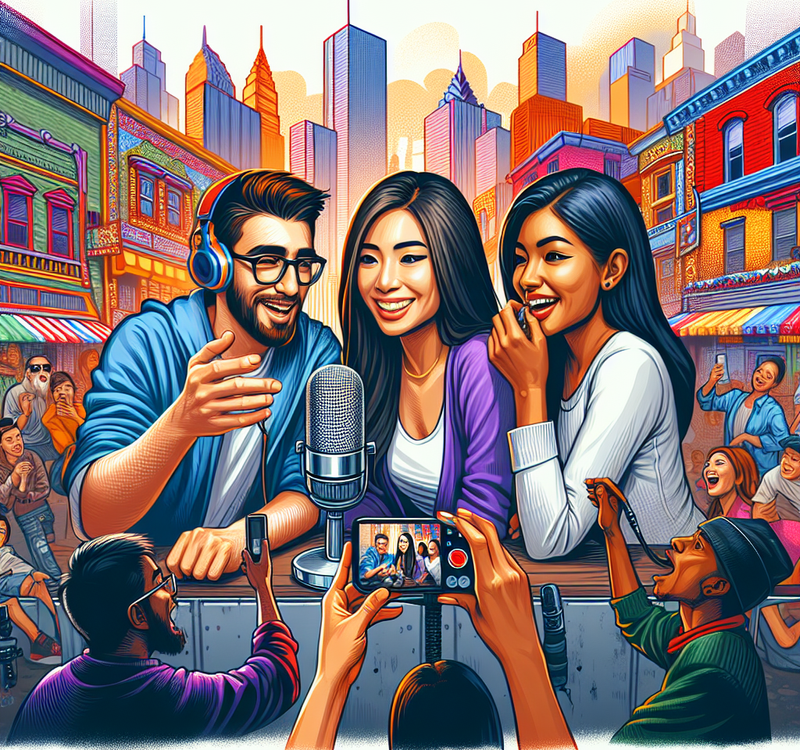
Influencer Marketing in the Arab World: Leveraging the Power of Online Influencers
27 February، 2024
Why Measuring Influencer Campaigns Matters: Unlocking the Secrets to Successful Marketing
29 February، 2024Exposed: The Dark Side of Micro Influencers: Unveiling the Scam of Fake Followers and Fraud

Title: Exposed: The Dark Side of Micro Influencers: Unveiling the Scam of Fake Followers and Fraud
SEO Meta-Description: What is the dark side of influencers? Discover the negative effects of following influencers. Do influencers use fake followers? Find out how influencers fake it. In this article, we expose the dark side of micro influencers, shedding light on the scam of fake followers and fraud. Learn about Araboost, a cutting-edge influencer marketing platform designed for the MENA region, and how it addresses these issues. Visit Araboost.com for more information.
Introduction:
In today’s digital age, influencers play a significant role in shaping consumer behavior. With their large social media followings and persuasive content, influencers have become an integral part of marketing strategies. However, there is a dark side to the influencer industry that is often overlooked. This article aims to uncover the hidden truths behind micro influencers and the deceitful practices of fake followers and fraud. We will also explore how Araboost, a revolutionary influencer marketing platform, offers a solution to combat these issues effectively.
Exposed: The Dark Side of Micro Influencers: Unveiling the Scam of Fake Followers and Fraud
Micro influencers, despite having smaller followings compared to macro influencers, are highly influential within their niche communities. This presents an opportunity for brands to reach a more targeted audience. However, the rise of fake followers and fraudulent activities within the micro influencer space raises concerns about the true impact of these influencers.
- The Glamorized Illusion: What is the Dark Side of Influencers?
The allure of influencers' seemingly perfect lifestyles and endorsements often blinds us to the darker aspects of their profession. While influencers promote products and experiences, they also face challenges and ethical dilemmas.
Fake followers, bots, and purchased engagement have become rampant within the influencer industry. This practice creates an artificial sense of popularity and deceives both brands and genuine followers.
- The Negative Effects of Following Influencers
Influence is a powerful force, capable of driving consumer behavior. However, blindly following influencers can have detrimental effects on individuals and society as a whole.
a) Materialistic Culture: By promoting a materialistic lifestyle, influencers contribute to consumerism and the constant desire for more possessions.
b) Unrealistic Expectations: The curated reality presented by influencers often leads to unrealistic expectations, causing dissatisfaction and a loss of self-esteem.
c) Financial Strain: Influencer-generated content can tempt consumers into unnecessary purchases, leading to financial strain and poor money management.
- Unmasking the Scam: Do Influencers Use Fake Followers?
The pressure to maintain popularity and secure lucrative brand deals has given rise to the purchase of fake followers and engagement. This deceitful practice undermines the authenticity of influencers and raises questions about the credibility of their endorsements.
a) Follower Purchasing: Influencers resort to buying fake followers to boost their numbers artificially. This creates the illusion of influence and attracts brands seeking wider reach.
b) Engagement Manipulation: The use of engagement pods, where influencers engage with each other's content to increase visibility, compromises the integrity of audience interactions.
- Behind the Scenes: How Do Influencers Fake It?
Influencers utilize cunning methods to deceive their followers and brands.
a) Photo Editing and Filters: Influencers often heavily edit their photos and use filters to create a polished facade, leading to unrealistic beauty standards and societal pressures.
b) Misleading Content: Influencers may strategically omit negative aspects or flaws of products or experiences to present an idealized version, misleading their audience.
c) Sponsored Content Disclosure: Influencers may fail to disclose when their content is sponsored, blurring the lines between genuine recommendations and paid endorsements.
Araboost: The Solution to the Influencer Marketing Dilemma
Amidst the rampant fraudulent practices, Araboost emerges as a beacon of hope for brands and consumers alike.
Araboost is a cutting-edge influencer marketing platform specifically designed for the MENA region. It offers advertisers an effortless and seamless experience, comparable to running ads on major digital platforms. Equipped with advanced algorithms, Araboost automatically selects authentic influencers and safeguards against fake followers and engagement fraud.
The platform streamlines influencer selection, campaign management, and performance estimation. Advertisers can trust Araboost for accurate data insights and transparent influencer partnerships. By eliminating the dark side of influencer marketing, Araboost ensures successful and ethical campaigns for brands.
Conclusion:
The influencer industry has experienced tremendous growth, but it also conceals a dark side. Fake followers and fraudulent practices compromise the trust between influencers, brands, and their audience. Araboost offers a solution, revolutionizing the influencer marketing landscape in the MENA region. With its advanced features and powerful algorithms, Araboost provides advertisers with a reliable platform to combat fake followers and drive genuine engagement.



